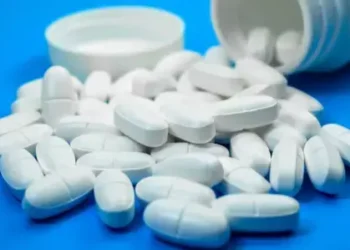
…Boost Economic Productivity
By Dr. Laz Ude Eze, MBBS, MPH
Nigeria is combating three concurrent health epidemics: communicable diseases (including COVID-19 and cholera), non-communicable diseases (NCDs) and road traffic injuries.
The World Health Organization in 2016 estimated that NCDs accounted for about 29% of deaths in Nigeria. This amounts to about 2.1million lives that are lost on average to NCDs. Many of the documented risk factors associated with NCDs are lifestyle and choice-based. Behavioural risk factors like excessive consumption of sugar-sweetened beverages (SSBs), inadequate physical activity, tobacco smoking and high caloric intake. None of this has been helped by the urban sedentary lifestyle and diet transition to processed foods and beverages.
In Nigeria, the consumption of SSBs is a leading risk factor for NCD-related deaths. According to a 2016 global soft drinks market analysis, Nigeria is the fourth highest consumer in the world market for soft drinks, coming after the United States, China and Mexico. With about 38.7 million litres of soft drinks sold yearly and a rising trend in the obesity figures, Nigeria is currently a minefield of NCD-related deaths.
At the policy level in Nigeria, several instruments are in place to address the root causes of communicable diseases and road traffic injuries, which have been arguably successful. For NCDs, this is still a work-in-progress. Despite the WHO statistics on the number of deaths resulting from NCDs in Nigeria, this health crisis is yet to be considered a national priority. Millions of Nigerians live with and die from type 2 diabetes mellitus, heart disease, fatty liver disease, tooth decay, gout arthritis and increased risk of cancers. Besides the loss of lives, several billions of dollars are lost to healthcare and productivity costs.
During my master’s program in Public Health in the United States, I analyzed, along with my health policy class, the rationale and potential impact of the SSBs tax raised by the former New York Mayor, Michael Bloomberg. A decade later, studies show a direct correlation between his policies and a reduction in SSB-related NCDs resulting from reduced consumption. During this period, the growth of the city economy continued.
A 2014 study by Wang Y.C et al found that a 20% tax raise on SSB prices can reduce consumption by around 20%. Two years after South Africa introduced its health promotion levy targeting SSBs, a study by PRICELESS-SA reported that the “sugar tax” led to a reduction in consumption, while taxes from consumers have been used to strengthen the country’s health system. Nigeria can do the same.
SSB tax policies work because they operate on a population level to create an environment that empowers many people to practice healthy behaviours rather than only a few. This is not a novel idea anymore, countries all over the world have been taxing SSBs with great results. Mexico, for instance, recorded a 9.5% reduction in the purchase of SSBs in 2015, a year after the 1 peso per litre excise tax was introduced. Nigeria came close to introducing a similar levy on SSBs but suspended it in 2009 due to industry pressure and global economic concerns.
Clear labels that carry warnings such as “Excessive sugar consumption increases the risk of obesity and type 2 diabetes” should accompany every SSB product and advertising. Schools and workplaces should provide healthier SSB alternatives.
Despite the harsh economic situation and the burden of managing the COVID-19 pandemic, doing nothing about NCDs is not an option. Consequently, I am excited that the Federal Government has announced a “pro-health” tax increase on soft drinks in Nigeria in the 2022 budget. This tax will enable revenue generation for health programs, especially those targeted at addressing NCDs.
Dr. Laz Ude Eze is a public health physician, founder of TalkHealth9ja and a founding member of the National Action on Sugar Reduction Coalition. He can be reached at [email protected].


































